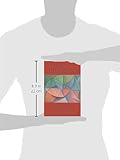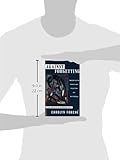In With Our Eyes Wide Open: Poems of the New American Century, Eduardo Galeano’s prose poem, “The Nobodies,” calls for recognition: “The nobodies: nobody’s children, owners of nothing. The nobodies: the no ones, the nobodied, running…”
In this plea for the forgotten, each addition reveals the dangers of invisibility:
"Who are not, but could be.
Who don’t speak languages, but dialects.
Who don’t have religions, but superstitions.
Who don’t create art, but handicrafts.
Who don’t have culture, but folklore.
Who are not human beings, but human resources.
Who do not have faces, but arms.
Who do not have names, but numbers…”
This focus on depletion (“do not”) forces us to see that which “could be.” Galeano’s poem sets With Our Eyes Wide Open – a contemporary collection of poetry engaged with the consequences of war and marginalization – into motion. Edited by Douglas Valentine, the anthology includes 77 poets, half of which are writing outside the U.S. Divided into six sections, each section addresses particularities of conflict such as language appropriation and environmental degradation. Each part takes its name from a poem, such as Teresa Mei Chuc’s “Jumping Jack: The M16 Mines.” Yet, these sections are hardly meant to be exclusive and separate; poems echo across sections, reflecting the anthology’s movement across aesthetics and diaspora. As Valentine writes in his foreword: “Some poems encompass many themes and cannot be categorized.”
At its very core, With Our Eyes Wide Open offers a poetry of witness, focusing on raising transparency as an act of social justice. Indeed, despite their diverse experiences and aesthetics, these poets are linked by a desire to promote peace and awareness. The forgotten and silenced voices of immigrants, the working class, and victims of war become the central focus, putting forth a strong poetic consciousness in the 21st century. Indeed, this anthology acts as a warning against de-sensitization: oppression is not a matter of the past. It is an ongoing present and future.
We can see this insistence on history haunting the present in Wanda Coleman’s evocative poem, “American Sonnet (10).” She writes: “illuminate the blood-soaked steps of each/historic gain. a yearning.” Here, Coleman asks us to see each blood-soaked step – the continuum of oppression. Her poem raises key questions such as: What are the limits of oppression? When does vengeance occur? What can we yearn for in the space of marginalization?
What is most striking about With Our Eyes Wide Open is not so much its “aboutness” (i.e. poems “about” war); rather, what arises from this collection is each poet’s attempt to say that which is difficult. In other words, poetry becomes a vessel through which these poets complicate, question, and consider their past, present, and future. It is no surprise that many of these poems act as ars poeticas and discuss the writing process in relation to the consequences of war.
Take for instance Adrie Kusserow’s poem, “War Metaphysics for a Sudanese Girl,” which discusses the difficulty of “talking through” trauma. Indeed, how is it possible to heal when the wound continues to rupture? Kusserow writes: “This is how it goes at the Trauma Center:/all day the hot poultice of talk therapy,/coaxing out the infection…” Suheir Hammad’s “4:02 pm” addresses how poetry in particular engages the wound of war. The poem begins:
"poem supposed to be about
one minute and the lives of three women in it
writing it up
the block a woman killed
by her husband”
Here, “supposed to be about” suggests the inherent problem of expectations meeting articulation. At the end of the poem, Hammad writes: “somebody tell me/something good,” as if turning to the reader to take up the weight of articulation. The pressure to witness accurately is also deeply felt. Yet, memory is faulty in trauma. From Eliza Griswold’s poem “Ruins”: “The dead man looked like this. No, that.” Indeed, rather than “speak[ing] for themselves” (in the Editor’s Note), these poems speak about the trouble of speaking.
Moreover, many of these poems formally echo the experience of marginalization. Critic and writer Edouard Glissant writes of trauma echoing form in Poetics of Relation: “we do not see it stretch into our past (calmly carry us into the future) but implode in us in clumps, transported in fields of oblivion, where we must, with difficulty and pain, put it all back together…” Considering Glissant, these poems reflect the physical experience of pain. Many poems in the anthology are necessarily fragmented and/or expansive. Indeed, Lesego Rampolokeng’s prose poem sprawls across the page with uncontrollable immediacy:
“the well I spring out of that grave me a kind of birth continues to swell well into my deathyears. It was not hate so much as a fate unwritten in king james bibles or studies of academic analysis that struck existence disease rife.”
We feel the panic and movement of the poem in these long sentences. Solmaz Sharif’s poem “Drone” – a standout in the anthology– offers a body of text, moving across the page with bullet points. Readers are left to feel the inescapability of surveillance, as a kind of overbearing Morse code. Here, the “drone” does not stop. She begins:
“somewhere I did not learn mow down or mop up • somewhere I wouldn’t hear your father must come with me or I must fingerprint your grandmother can you translate please • the FBI has my cousin’s computers…”
The end of the poem, which doesn’t end, leaves us with an uneasy watchfulness: “we have learned to sing a child calm in a bomb shelter • I am singing to her still” The terror of this poem resides in the gap between the familiar (singing a lullaby) and the unfamiliar (the bomb shelter). The inclusion of Sharif’s poem, alongside poets such as Martin Espada, also demonstrates Valentine’s thoughtful insistence on including emerging and established poets as we move into the “New American Century.”
Continuing the work of anthologies such as Against Forgetting: Twentieth-Century Poetry of Witness, edited by Carolyn Forche (1993), With Our Eyes Wide Open offers new poems working toward justice and visibility. With Our Eyes Wide Open’s emphasis on the necessity of witness reverberates in the last poem by Sam Hamill, who asks us to “bear witness/with our eyes open.” The collective “our” invites poets and readers alike to commit to seeing and speaking about that which is overlooked and silenced.
A public reading for With Our Eyes Wide Open, featuring poets Tyehimba Jess, Evie Shockley, Araclis Girmay, Laren McClung and Pierre Joris, will occur at the Everything Goes Book Café in New York on May 3rd, 7:00pm.
Jane Wong lives in Seattle, where she is a Ph.D. candidate in English at the University of Washington. A former U.S. Fulbright Fellow, she holds an M.F.A. from the University of Iowa. Her poems have appeared in journals such as Mid-American Review, CutBank, Octopus, and in the anthologies Best New Poets 2012 and The Arcadia Project: North American Postmodern Pastoral.


